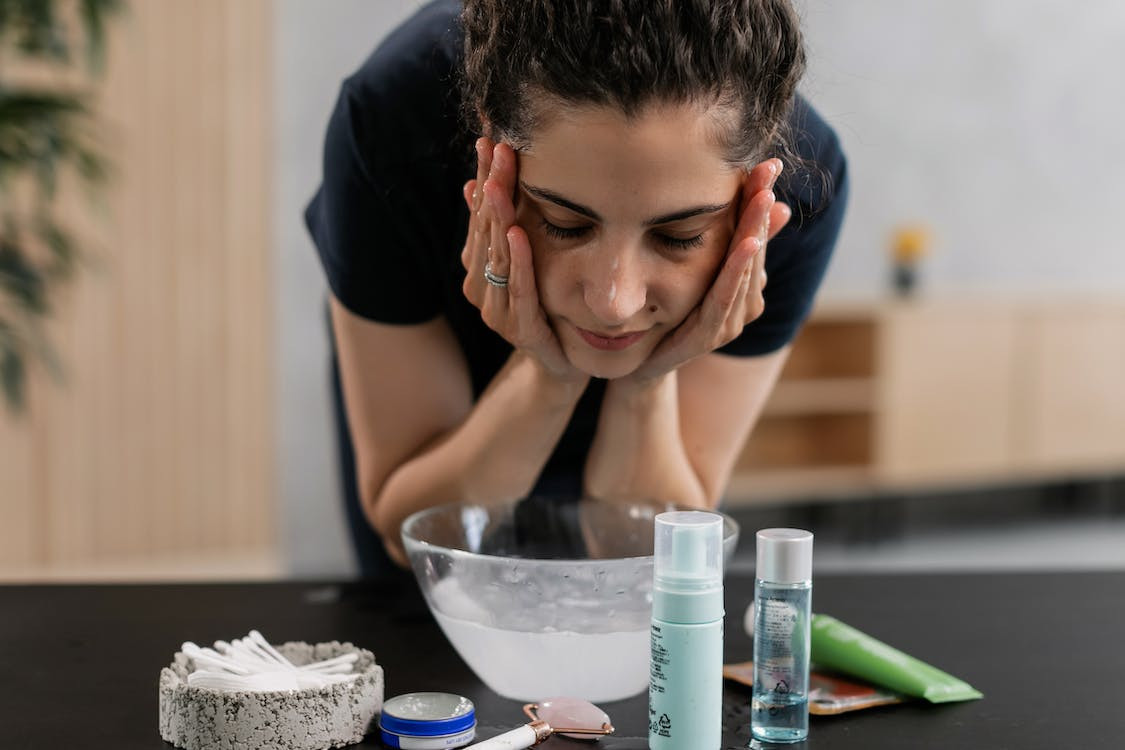New Skincare Holy Grail: Is Cold Water Good for Your Skin?

©️ Alena Darmel / Pexels
Whether you are a “ten-step Korean routine” or a “necessities only” skincare type of person, one thing is for certain: you definitely wash your face at least once per day. Washing your face can be helpful for removing dirt buildup, which can keep your skin healthy-looking. However, how you wash it and what you use can have a drastic impact on your skin in the long run.
One of the main things to consider is whether cold or warm water is better. This can depend on your skin type and texture, however using hot water has been long considered a no-go! Here’s what experts say about using cold water for your skin.
Is Cold Water Good for Oily Skin?

Cold water is great if you have oily skin as it can help control excessive oil production and keep your skin cleansed without drying it out.
Best part of it all? Cold water can improve your blood flow, which keeps your natural oils in place without making you feel greasy. It also creates more collagen in your skin, which means countless compliments on how young you look!
Drawbacks
Temporary Effects
The effects of cold water on reducing oiliness and pore size are generally temporary. Once your skin warms up and your body’s natural processes resume, oil production, and pore size can return to their normal levels.
Potential Irritation
Cold water can be harsh on the skin, especially if it’s sensitive. Cold water may cause irritation or redness, particularly if you have underlying skin conditions.
Drying Effects
Cold water can potentially strip the skin of its natural oils, leading to dryness and potentially triggering an overproduction of oil as your skin tries to compensate. Stripping the skin’s natural oils can disrupt the skin’s moisture barrier.
Is Cold Water Good for Dry Skin?

Cold water can be beneficial for dry skin as it doesn’t allow your natural oils to be completely stripped off your skin. This is great if you are looking for ways for your skin to look healthy and plump!
If you have rosacea, cold water is also a great option for your skin. Since hot water can cause your rosacea to flare up, it’s better to use cool water to keep the skin calm instead.
Drawbacks
Limited Hydration
Cold water alone does not provide the necessary hydration that dry skin needs. Hydration needs to come from moisturizers and other skincare products designed to replenish and retain moisture in the skin.
Individual Variability
Everyone’s skin is different. Some individuals may find that cold water worsens their dry skin or leads to other skin issues.
Drying Effects
While cold water might initially provide a soothing sensation, it can also strip the skin of its natural oils and disrupt the skin’s moisture barrier. This can lead to further dryness over time.
Potential Irritation
Cold water can be harsh on sensitive or already irritated skin. It may cause discomfort, tightness, or exacerbate existing dryness.
The Bottom Line

It’s important to keep a solid balance to avoid any dryness that can occur from using cold water to wash your face. The water you use needs to be cold enough for your skin to feel refreshed and clean, but you should also avoid using ice-cold water!
In conclusion, the choice between cold and hot water for your skincare routine is not a one-size-fits-all decision. Both temperatures offer unique benefits and considerations, and understanding your skin type, goals, and individual reactions is essential in making the right choice.
Cold water can provide a soothing and refreshing sensation, making it particularly useful for calming irritation, reducing redness, and temporarily controlling excess oil However, prolonged use or very cold temperatures may lead to dryness and discomfort, particularly for those with dry or sensitive skin. On the other hand, hot water can aid in effective cleansing by opening up pores, promoting relaxation and stress relief, and enhancing the benefits of exfoliation. It can be particularly enjoyable during a relaxing bath or shower. Yet, using hot water excessively or at extreme temperatures can compromise your skin’s natural barrier and exacerbate certain conditions.
In most cases, lukewarm water strikes a balance, effectively cleansing the skin without causing excessive dryness or irritation. This temperature is generally well-suited for daily use and suits a wide range of skin types. So, whether you use cold or warm water is now in your hands and we hope this guide helped you choose the right fit for you and your skin. So, which one will it be for you? Let us know down below!


